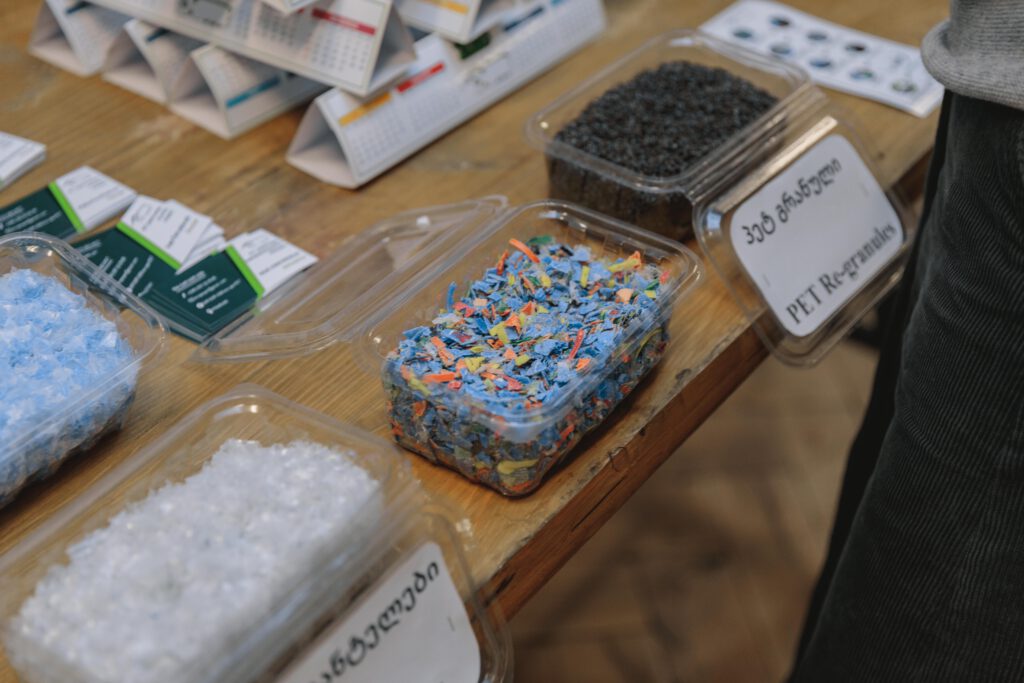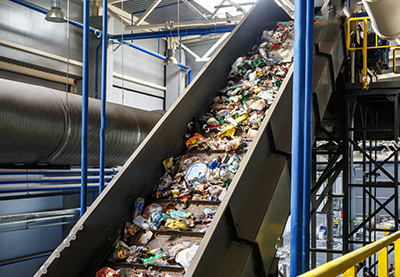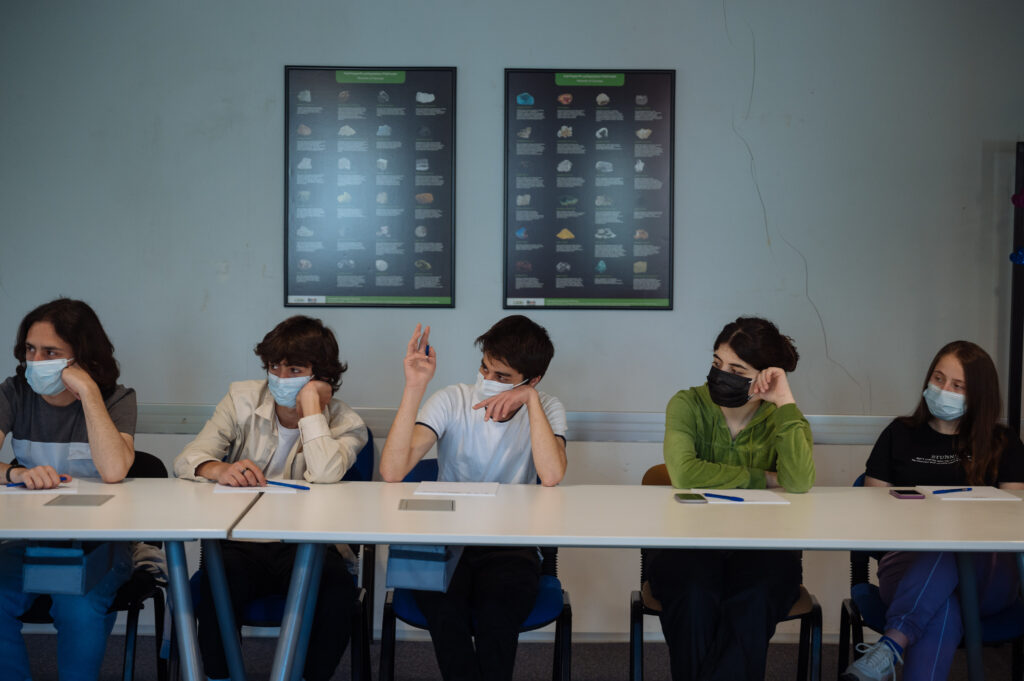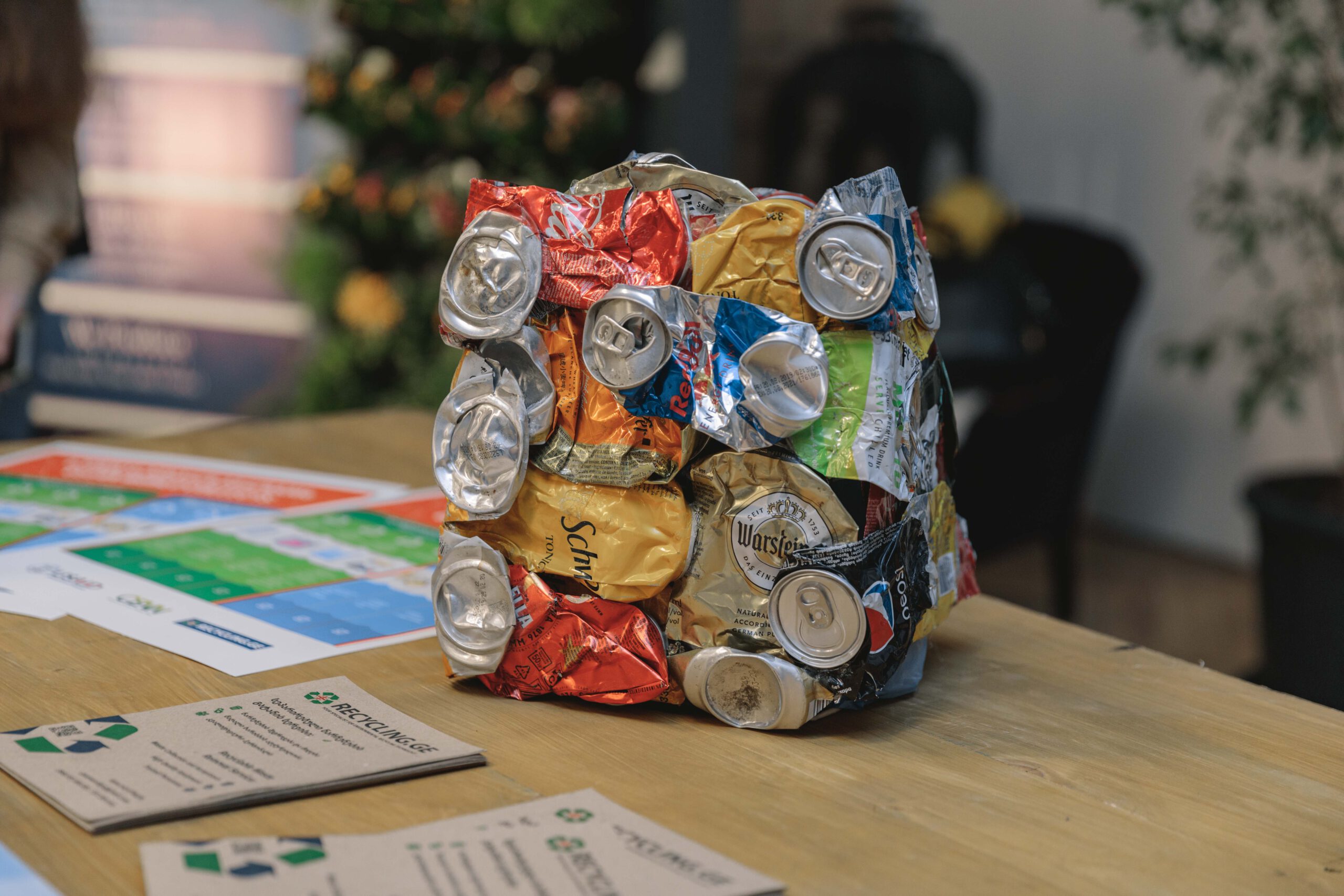Duration: 2017-2020
Geographic area: Tbilisi City, Adjara AR, Shida Kartli, and Kakheti regions
Implemented by: CENN
Donor: USAID
The project assisted the Government of Georgia to improve the waste management system in the county and make it comply with international standards. The support included the development of a legislative framework via participatory and inclusive approaches to policy-making, as well as assistance in implementing the requirements of the legislation to establish modern waste management practices, improve natural resource management of biologically significant areas and build the capacity of various stakeholders.
WMTR‐II project had four overarching objectives: 1. Implementation of an Integrated Waste Management System; 2. Building the capacity of the recycling sector; 3. Implementation of a Cost recovery Tariff Methodology; and 4. Building capacity and increasing awareness of the general public and other stakeholders about modern waste management practices.

Circular economy
and resource
efficiency
Due to the program’s support, 19 waste management plans for municipalities and 3 waste management plans for protected areas have been developed and adopted by the government of Georgia. The program helped to develop 3 regulations on Extended Producers Responsibility (EPR) and addressed the challenges posed to biodiversity by rampant littering and groundwater pollution by closing 10 illegal dumpsites in the project’s target regions. WMTR II also launched a nationwide campaign, Keep Georgia Beautiful, to preserve Georgia’s biodiversity and maintain a clean environment through long-term partnerships with the public and private sectors.
The WMTR II program forged a new Public-Private Partnership (PPP) in waste separation and recycling which introduced the country’s first public waste separation schemes. As of 2020 with the program’s support, Georgia had 47 waste separation corners located in public places, where citizens can deposit their separated waste – paper, plastic bottles, glass, and aluminum – to be recycled. Private companies collect the separated waste and provide it to recycling companies. In addition, 28 schools in the regions of Georgia started paper waste separation and various institutions started waste separation on their premises.
The program focused on making the waste management sector self-reliant via establishing a proper tariff and cost-recovery system and establishing an effective fines system in case of illegal dumping.

Enabling business environment for an inclusive economy
The program helped Georgia strengthen emerging recycling businesses to improve their business operations and increase sales through technical support and sub-grants. As a result, 15 waste aggregating and recycling companies improved their supply chains and accessed raw materials more easily by establishing strong business connections with large waste generators, optimizing recyclable waste collection schemes and being involved in public waste recycling systems established by the program. WMTR II also supported companies in improving management practices and business performance by helping them comply with legislative requirements, improving financial systems and marketing processes, as well as introducing product quality standards. Moreover, the sub-grants disbursed to 5 recycling companies enabled them to upgrade equipment, increase their production capacity and significantly improve the quality of recycled products.
The program established and strengthened the Georgian Waste Management Association (GWMA) through institutional capacity building, facilitating their communication and cooperation with various stakeholders, as well as helping them to lobby legislative changes at the governmental level.

Strengthening
of education
systems
The program succeeded in incorporating a modern course about circular economy in the curriculum of one of the most prestigious universities in Georgia, ISET, as well as built the capacity, educated and raised awareness of different stakeholders to ensure that they are aware of and able to apply proper waste management practices. A broad audience was reached through providing information via media channels – radio, TV, electronic and social media, printed press, as well as knowledge (booklets, informational posters, infographics, etc.) and promo materials. Behavioral changes were promoted by increasing motivation, capacity, and skills via interactive activities such as trainings, seminars, roundtable discussions, and debates (green cafes, film screenings), broad public awareness campaigns were conducted (recycling weeks/days, fairs/festivals, exhibitions, competitions, marking environmental days, cleanup campaigns), and environmentally friendly educational and learning spaces were established.
A total of 5,418 people have been trained in sustainable natural resources management, including more than 3,000 female representatives – 3,477 school students, 219 university students, 244 representatives of the private sector, 528 school and kindergarten teachers, 950 representatives from the municipalities, media, NGOs, etc. 6,988 people used 4R materials developed by the program.
